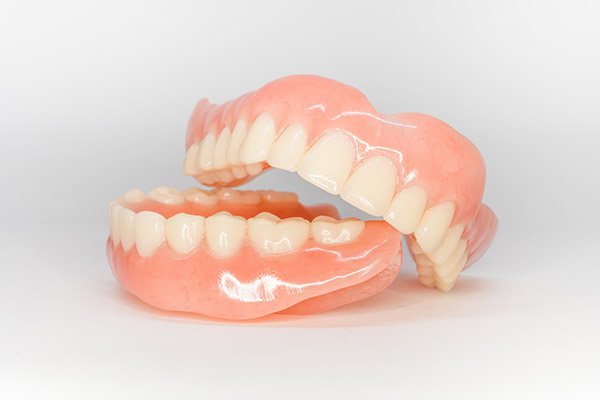 The need for relining your dentures may not occur to you because of your busy schedule. But being aware of it can help you get relining services in time. Relining these restorations can help maintain your oral health and prevent discomfort. Here are the three signs you need to get relining services right away.
The need for relining your dentures may not occur to you because of your busy schedule. But being aware of it can help you get relining services in time. Relining these restorations can help maintain your oral health and prevent discomfort. Here are the three signs you need to get relining services right away.
1. Presence of breaks or fractures
Inspecting one’s dentures each day can detect breaks, fractures, or even dents. This is possible while cleaning them. These anomalies can cause mouth injuries. Living with them can result in deep cuts to the soft tissues of the mouth.
That is why the dentist must repair these damaged areas as soon as possible. Relining will be part of the repairs. Damaged parts can cause the denture to misalign. Repairing it will result in a better fit and comfort while wearing it.
2. Difficulty eating and speaking
Loosening dentures is a sign that these restorations need relining. The patient will notice that the fit is not good anymore. When this happens, the individual will experience denture slippage. This makes the prosthesis move out of its proper position while smiling, talking, and eating.
Misaligned and loosened dentures make chewing difficult. Improper chewing can lead to digestive issues. These denture issues can also affect the way the individual talks. Communicating is difficult if the words are slurred or slushy. Relining dentures can correct these problems.
3. Sores and pain
A person who is new to wearing dentures may experience difficulties, pain, and discomfort. These signs disappear as the individual adapts to the restorations. Some parts of the prosthesis rub against the soft tissues of the mouth. This causes blisters, cuts, and irritation. Sore spots may also develop on the gums.
The dentist can repair and reline these dental restorations. An experienced dentist can spot the relining issues right away. Adjusting the dentures will be the next step. While healing, the patient can soothe the aching areas by rinsing the mouth with a warm salt solution.
Types of denture reline
Bringing the dentures to the dentist right away is important. This can help determine what solution is possible for the damaged denture. The dentist will inspect the restorations first. Here are the types of denture relines to consider:
- A temporary reline is necessary if the patient is in the process of getting new dentures. The individual does not need immediate dentures anymore. This process relines the old dentures so that the patient can wear them while the new ones are still in the dental lab. Most temporary reline materials are medicated. The medication in the material fights infections and relieves pain.
- A soft reline will last for about one to two years. It uses a pliable material for a year. People who are new to wearing dentures find a soft reline more comfortable. Even so, it will need more adjustments.
- A hard reline will last for five years. The dentist will shave off a thin layer of the denture first. Getting an impression of it with some putty is necessary. The relining will then fit the roof of the patient’s mouth well.
The mentioned signs will allow the dentist to repair your dentures before complications arise
Busy schedules and demanding work often lead to misaligned dentures. The slightest damage to the restoration can result in misalignment. This can lead to pain and embarrassment. Working with your dentist can help reline your prostheses and prolong the results.
Request an appointment or call Pampered Smiles at 404-891-9489 for an appointment in our Atlanta office.
Recent Posts
Those missing one or more teeth with healthy natural teeth can benefit from partial dentures. Not only do partial dentures help people chew food correctly, but they also restore the appearance of a smile. Choosing partial dentures allows a patient to regain comfort and confidence without complicated procedures.Partial dentures are removable oral appliances that fill…
Dentures are a great solution for people who have lost some or all of their teeth. They can restore one's ability to eat and speak properly and improve the overall appearance of your smile. However, you may have questions about the denture process, from the initial consultation to the final fitting. This blog article will…
Implant-supported dentures are ideal for many dental professionals and their patients. They offer many benefits over their alternatives, including a natural look and results lasting around 15 years or more. If you are considering restoring your smile with implant-supported dentures, we have outlined a few things to know before your appointment.Implant-supported dentures are not ideal…


